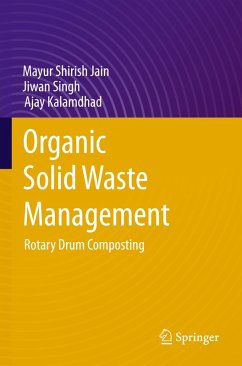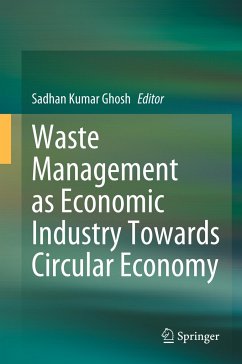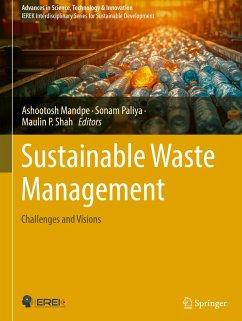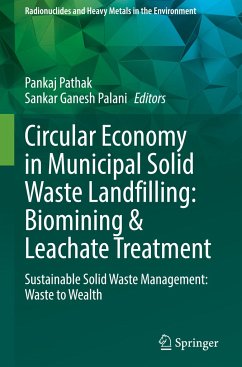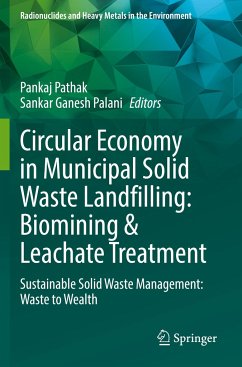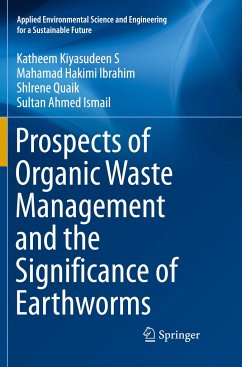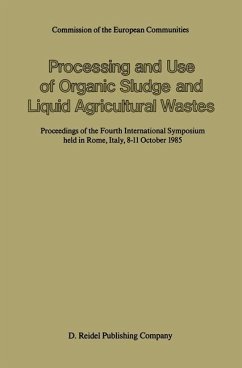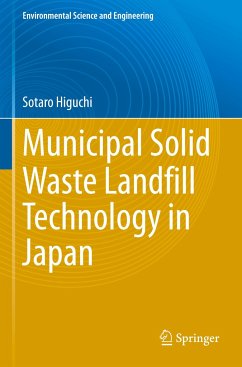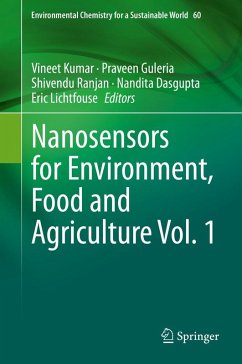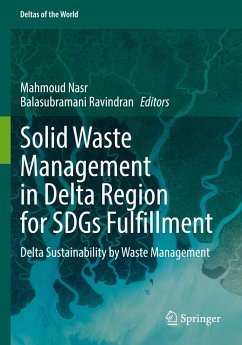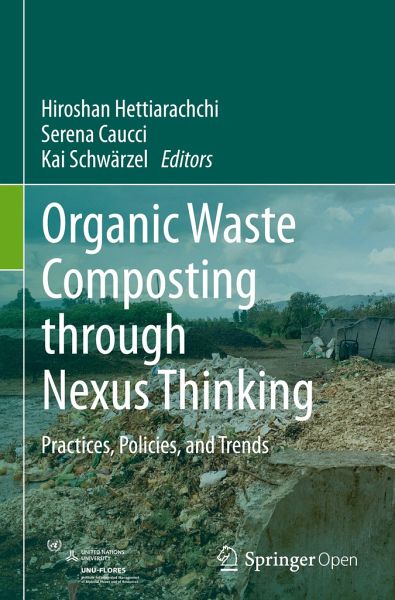
Organic Waste Composting through Nexus Thinking
Practices, Policies, and Trends
Herausgegeben: Hettiarachchi, Hiroshan; Caucci, Serena; Schwärzel, Kai
Versandkostenfrei!
Versandfertig in 6-10 Tagen
38,99 €
inkl. MwSt.

PAYBACK Punkte
19 °P sammeln!
Organic waste composting is another excellent example to demonstrate the power and the benefits of nexus thinking. Even though organic waste composting itself is not a new topic, those who want to start a new project or align an ongoing project with nexus thinking, find it difficult to gather the necessary information. With nine case studies from four continents, this book aims to fill above gap in literature. While current literature on composting is often found to be limited to either soil/agriculture sector or waste management sector, this book presents a combined point of view. This open a...
Organic waste composting is another excellent example to demonstrate the power and the benefits of nexus thinking. Even though organic waste composting itself is not a new topic, those who want to start a new project or align an ongoing project with nexus thinking, find it difficult to gather the necessary information. With nine case studies from four continents, this book aims to fill above gap in literature. While current literature on composting is often found to be limited to either soil/agriculture sector or waste management sector, this book presents a combined point of view.
This open access book starts with an introductory chapter that describes the need to bring the waste management aspects and soil nutrient management aspects of compost production into one integrated theme. The relevance of nexus thinking and the Sustainable Development Goals (SDGs) are also presented in this introduction. The first three chapters after the introduction covers composting from the solid waste management and its policy aspects, taking examples from three developing countries. The next three examples are mostly about the benefits composting can provide to the soil and agriculture. These examples are also from three developing countries, but with a mixture of urban as well as rural settings. Last three chapters present more insight into the latest developments taking examples from Europe, as well as new methods adapted from the traditional styles from Africa.
This open access book starts with an introductory chapter that describes the need to bring the waste management aspects and soil nutrient management aspects of compost production into one integrated theme. The relevance of nexus thinking and the Sustainable Development Goals (SDGs) are also presented in this introduction. The first three chapters after the introduction covers composting from the solid waste management and its policy aspects, taking examples from three developing countries. The next three examples are mostly about the benefits composting can provide to the soil and agriculture. These examples are also from three developing countries, but with a mixture of urban as well as rural settings. Last three chapters present more insight into the latest developments taking examples from Europe, as well as new methods adapted from the traditional styles from Africa.



